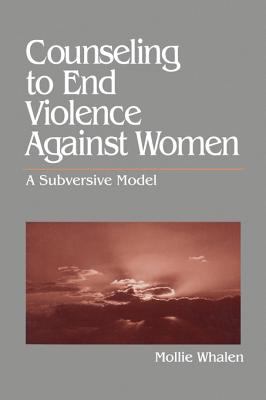
Counseling to End Violence Against Women
ISBN-10: 0803973802
ISBN-13: 9780803973800
$85.00
Book Specs
Binding
Trade Paper
Publisher
SAGE Publications, Inc
Published on
Apr 10, 1996
Edition
1st Edition
Dimensions
6.00x0.47x9.00 Inches
Weight
0.68 Pounds
About the Book
I found this book to be penetrating, easy to read, and very thought provoking. . . . It really is an excellent treatment of a sensitive subject. I highly recommend it. --Nicolette Jackson, Re-Entry Center of Orange County Community College, Costa Mesa, California "Mollie Whalen′s book Counseling to End Violence Against Women is subversive in the best sense of the word. She has tackled head-on the challenge of a social action approach to working with abused women. The book is provocative, challenging the reader to pursue fundamental social change in the practice of counseling victims of domestic violence." --Ruth A. Brandwein, The University of Utah "After years of heavy psychologizing discourse, a book has finally come along that places initiation into the women′s movement at the core of counseling violated women. Mollie Whalen cuts through professionalization and brings the political back into the process of counseling women. A wonderfully subversive work." --Bonnie Burstow, Private Practice, Toronto Feminist theory has viewed violence against women as a result of a male-dominated society, but traditional counseling models for battered women have largely failed to encourage social change as a solution to this disturbing epidemic. Offering challenging arguments on the power of the counseling relationship to initiate change, Counseling to End Violence Against Women unites feminist and radical feminist theory and counseling practice to promote women′s liberation from violence and sexual oppression. In her comprehensive model, author Mollie Whalen examines the historical roles of the women′s movement and the battered women′s movement in relation to the development of a politically subversive approach to counseling. Whalen′s model focuses not only on empowering individual women but on seizing the collective power of women to end their victimization. Grounded in theory, this practical model also addresses professional issues that confront counselors in their work with battered women. In Counseling to End Violence Against Women, Whalen reconstructs the role of counseling with victimized women and promotes a valuable model for use in treatment and training. Counselors and counseling students will find her perspective challenging and invaluable.
